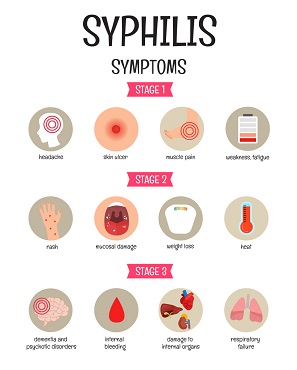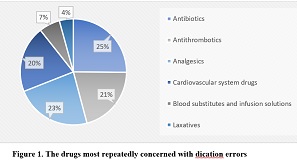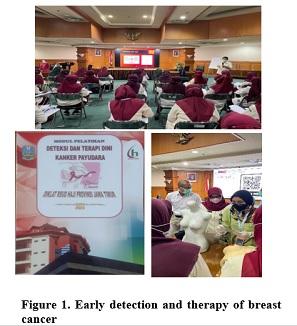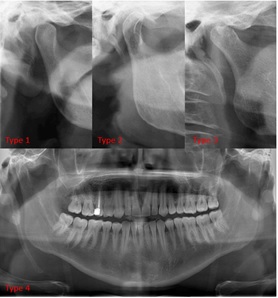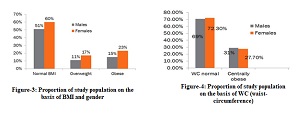THE ROLE OF FAMILY INTERVENTION IN EARLY DETECTION OF CONGENITAL DEAFNESS: A CASE STUDY

Downloads
Faundes V, Pardo R, Castillo Taucher S. Genética de la sordera congénita. 2012. Medicina Clínica 139(10), 446-451.
Vohr B, Jodoin-Krauzyk J, Tucker R, Johnson M, Topol D, Ahlgren M. 2008. Early Language Outcomes of Early-Identified Infants With Permanent Hearing Loss at 12 to 16 Months of Age. Pediatrics 122(3), 535-544.
Steer C, Golding J, Bolton P. 2010. Traits Contributing to the Autistic Spectrum. PLoS ONE 5(9), e12633.
Genetics in Medicine. 2002. Genetics Evaluation Guidelines for the Etiologic Diagnosis of Congenital Hearing Loss. 4(3), 162-171.
Purnami N, Dipta C, Rahman M. 2018. Characteristics of infants and young children with sensorineural hearing loss in Dr. Soetomo Hospital. Oto Rhino Laryngologica Indonesiana 48(1), 11.
Gürtler N, Lalwani A. 2002. Etiology of syndromic and nonsyndromic sensorineural hearing loss. Otolaryngologic Clinics of North America 35(4), 891-908.
Nugroho D. 2013. Kemampuan Auditorik Anak Tuli Kongenital Derajat Sangat Berat dengan dan Tanpa Bantu Alat Dengar. Medica Hospitalia : Journal of Clinical Medicine 1(2).
Soetirto I, Hendarmin H, Bashiruddin J. Gangguan pendengaran (tuli). in Soepardi EA, Iskandar N, Bashiruddin J, Restuti RD, editor. 2017. Buku ajar ilmu kesehatan telinga, hidung, tenggorok, kepala dan leher. Edisi ke-6. Jakarta: Balai Penerbit FKUI, 10-22.
Bany-Mohammed F, Eyal F, Gomella T. 2004. Gomella's Neonatology-- management, procedures, on-call problems, diseases, and drugs. 5th ed. New York: Lange Medical Books/McGrawHill.
Pediatrics. 2007. Year 2007 Position Statement: Principles and Guidelines for Early Hearing Detection and Intervention Programs. Available from: https://pubmed.ncbi.nlm.nih.gov/17908777/ [Accessed 20 May 2020].
Pediatric Rubella: Background, Pathophysiology, Epidemiology. Available from: https://emedicine.medscape.com/article/968523-overview [Accessed 20 May 2020].
Korver, A., Smith, R., Van Camp, G., Schleiss, M., Bitner-Glindzicz, M., Lustig, L., Usami, S. and Boudewyns, A. 2017. Congenital hearing loss. Nature Reviews Disease Primers 3(1).
Grosse, S., Ross, D. and Dollard, S. 2008Congenital cytomegalovirus (CMV) infection as a cause of permanent bilateral hearing loss: A quantitative assessment. Journal of Clinical Virology 41(2), 57-62.
Pratiningrum, Moriko., Purnami, Nyilo. 2011. Ketulian Pada Sindroma Rubella Kongenital (Laporan dua kasus). Surabaya: SMF Ilmu Kesehatan THT-KL FK Universitas Airlangga-RSUD Dr. Soetomo Surabaya.
Pengurus Pusat PERHATI-KL. 2016. Panduan Praktik Klinis, Panduan Praktik Klinis Tindakan, Clinical Pathway di bidang telinga hidung tenggorok - kepala leher. 2nd ed. Jakarta: Pengurus Pusat PERHATI-KL.
Marlow E. 2000. Sensorineural hearing loss and prematurity. Archives of Disease in Childhood - Fetal and Neonatal Edition 82(2), 141F-144.
Robertson C, Howarth T, Bork D, Dinu I. 2009. Permanent Bilateral Sensory and Neural Hearing Loss of Children After Neonatal Intensive Care Because of Extreme Prematurity: A Thirty-Year Study. PEDIATRICS 123(5), e797-e807.
World Health Organization. 2020. Primary ear and hearing care. Available from: https://www.who.int/pbd/deafness/activities/hearing_care/en/. [Accessed 20 May 2020].
Yoshinaga-Itano C, Seday AL, Coulter DK, Mehl AL. 1998. Language of early- and later- identified children with hearing loss. Pediatrics 102(5), 1161-71.
Holzinger D, Fellinger J, Beitel C. 2011. Early onset of family centred intervention predicts language outcomes in children with hearing loss. International Journal of Pediatric Otorhinolaryngology 75(2), 256-260.
Asha. 2001. Students with Hearing Impairment in the School Setting. Available from: https://www.asha.org/slp/schools/prof-consult/hearing-impaired/ . [Accessed 20 May 2020].
Copyright (c) 2020 Alif Sholehen, Fajrinka Pralampito, Antonius Galih, Akbar Ghaus, Andi Airina, Nyilo Purnami

This work is licensed under a Creative Commons Attribution-ShareAlike 4.0 International License.
- The journal allows the author to hold the copyright of the article without restrictions.
- The journal allows the author(s) to retain publishing rights without restrictions.
- The legal formal aspect of journal publication accessibility refers to Creative Commons Attribution Share-Alike (CC BY-SA).
- The Creative Commons Attribution Share-Alike (CC BY-SA) license allows re-distribution and re-use of a licensed work on the conditions that the creator is appropriately credited and that any derivative work is made available under "the same, similar or a compatible license”. Other than the conditions mentioned above, the editorial board is not responsible for copyright violation.





















